JUST RELEASED
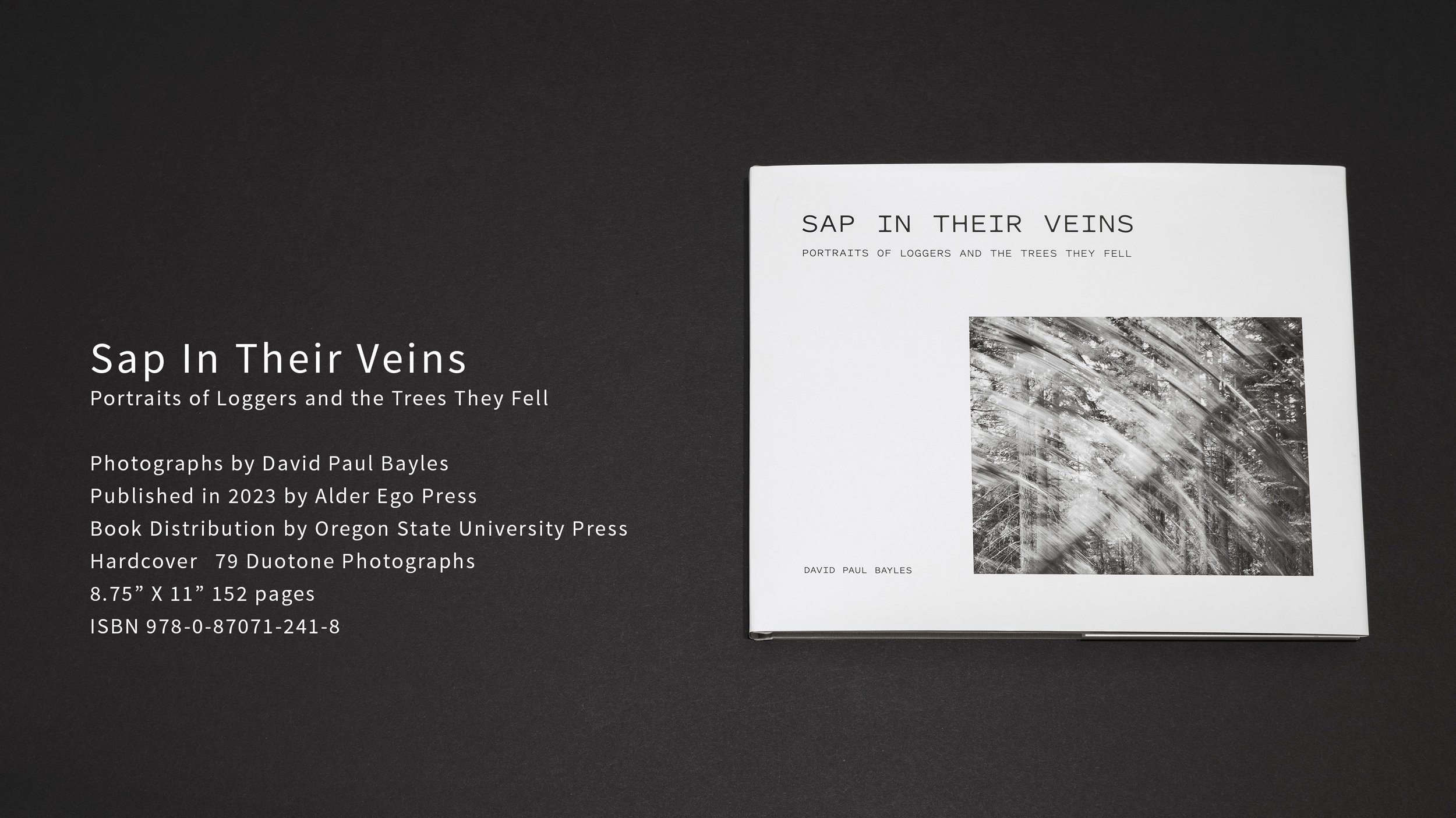




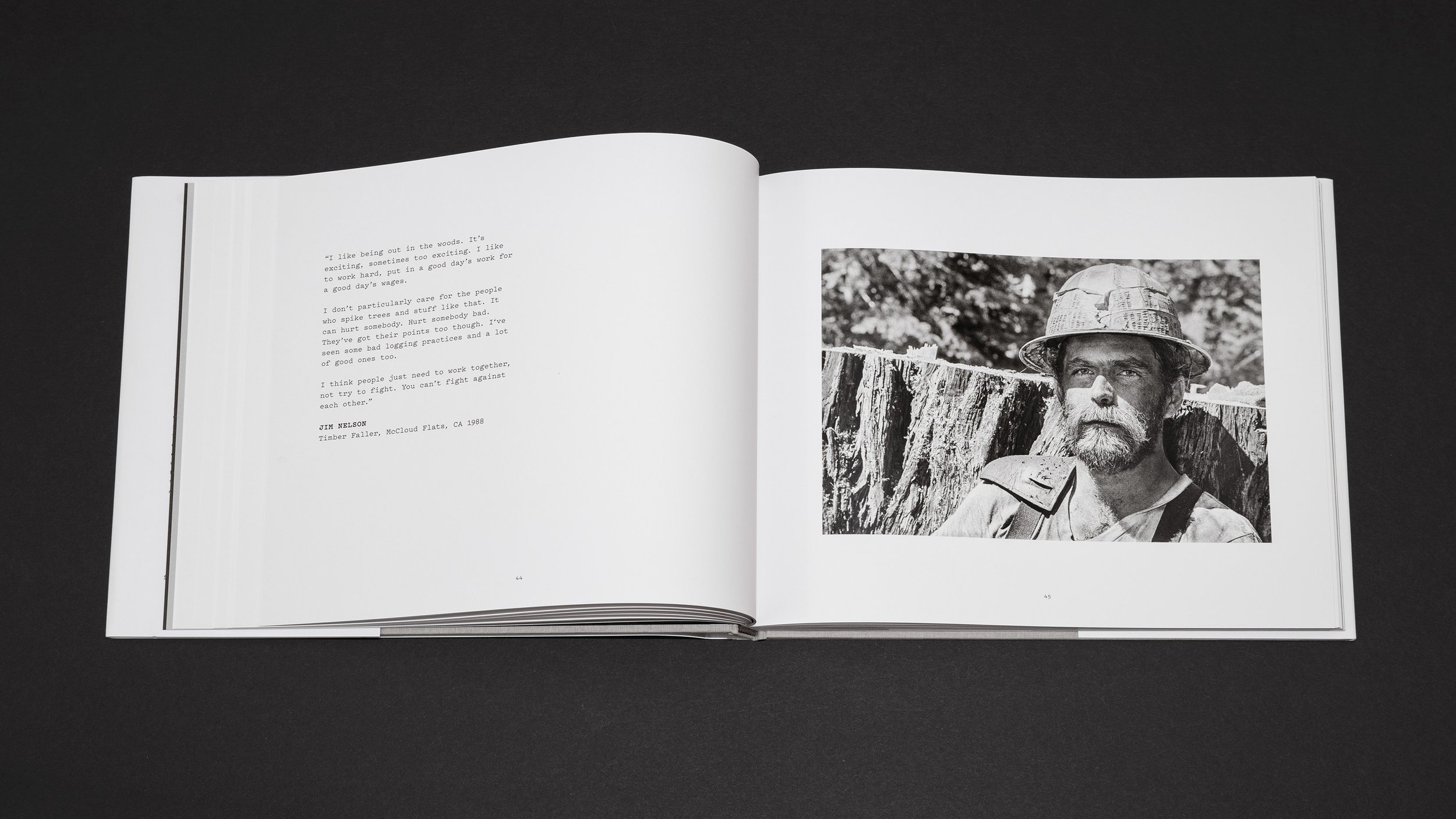
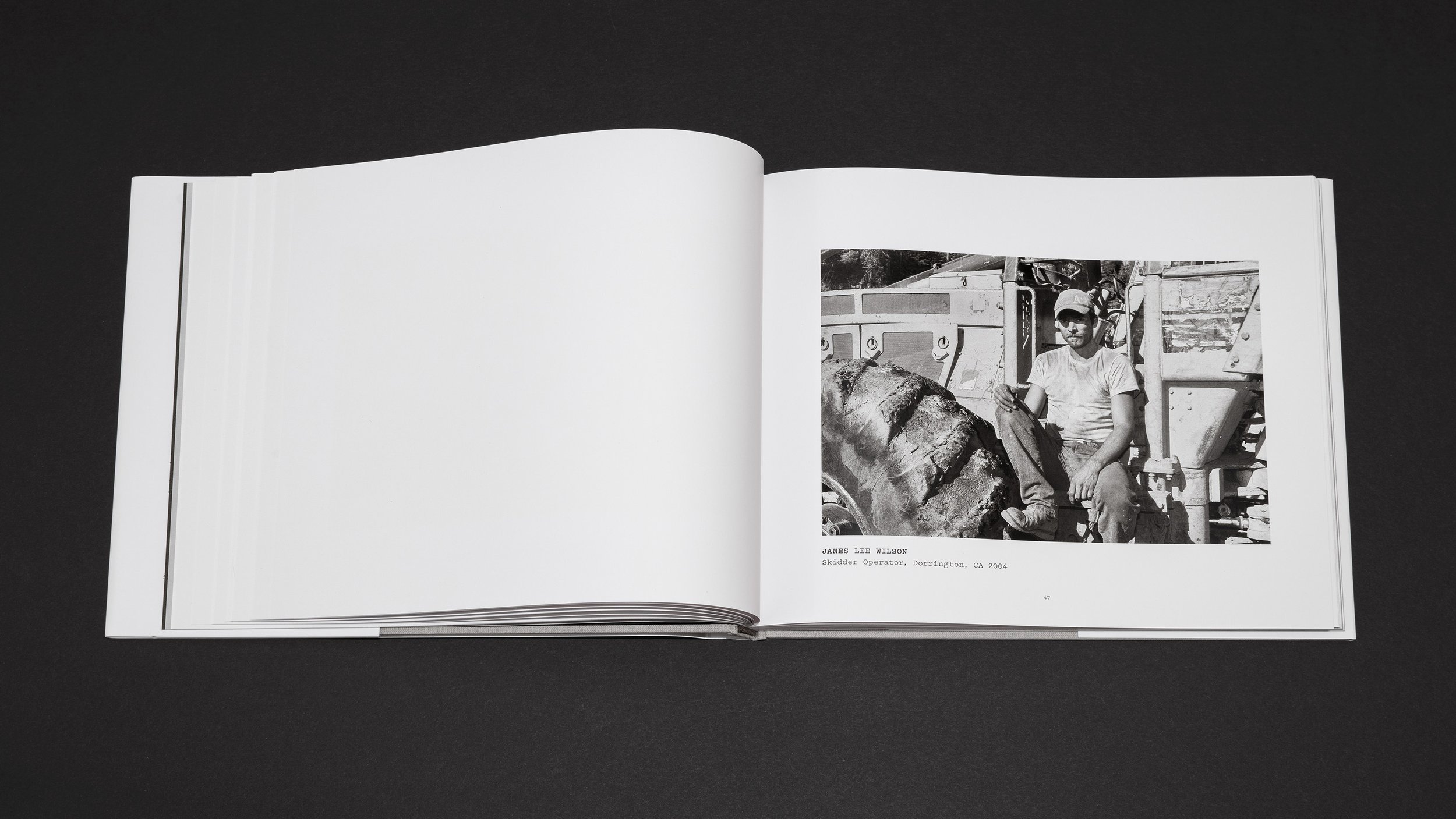
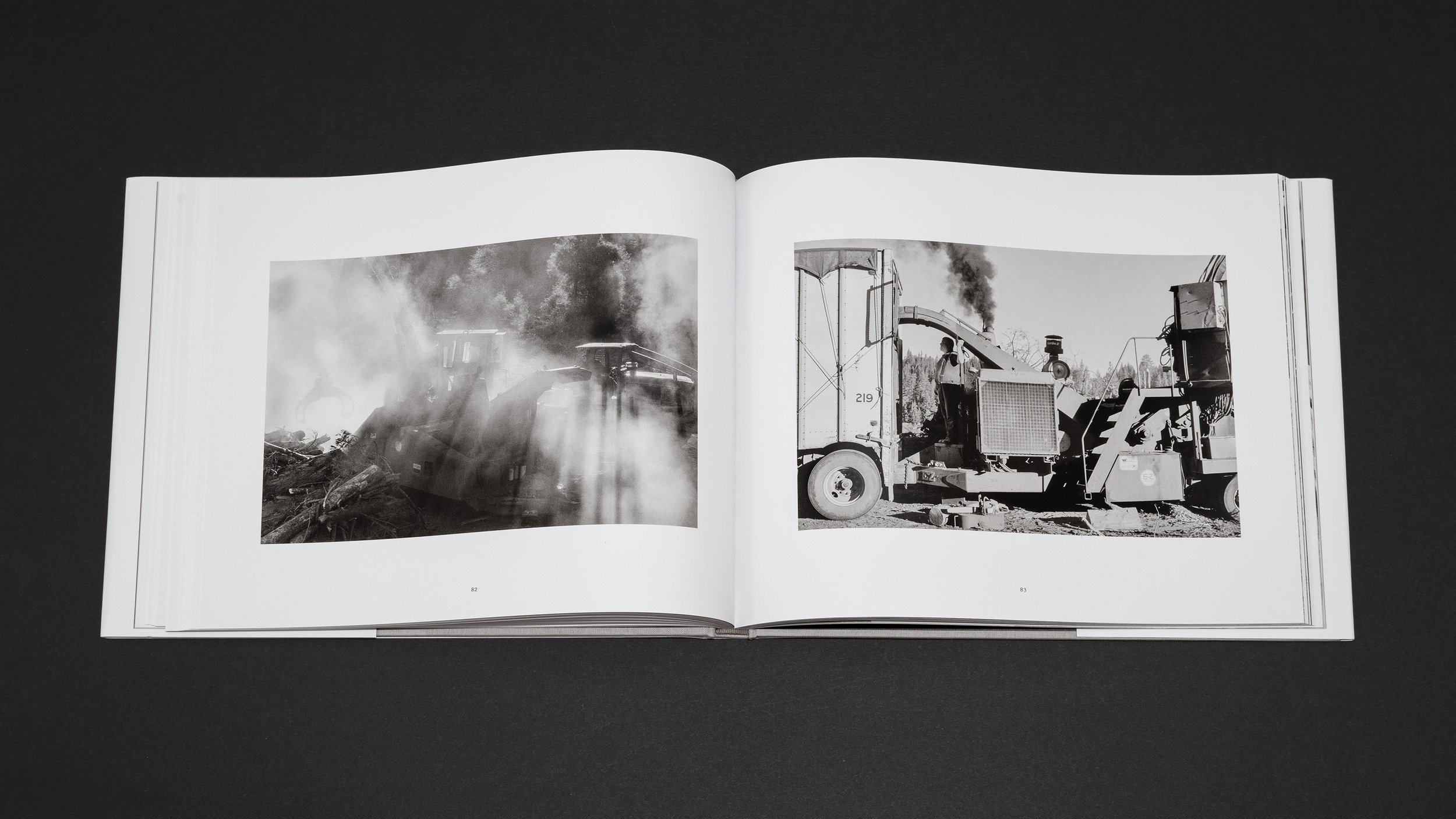
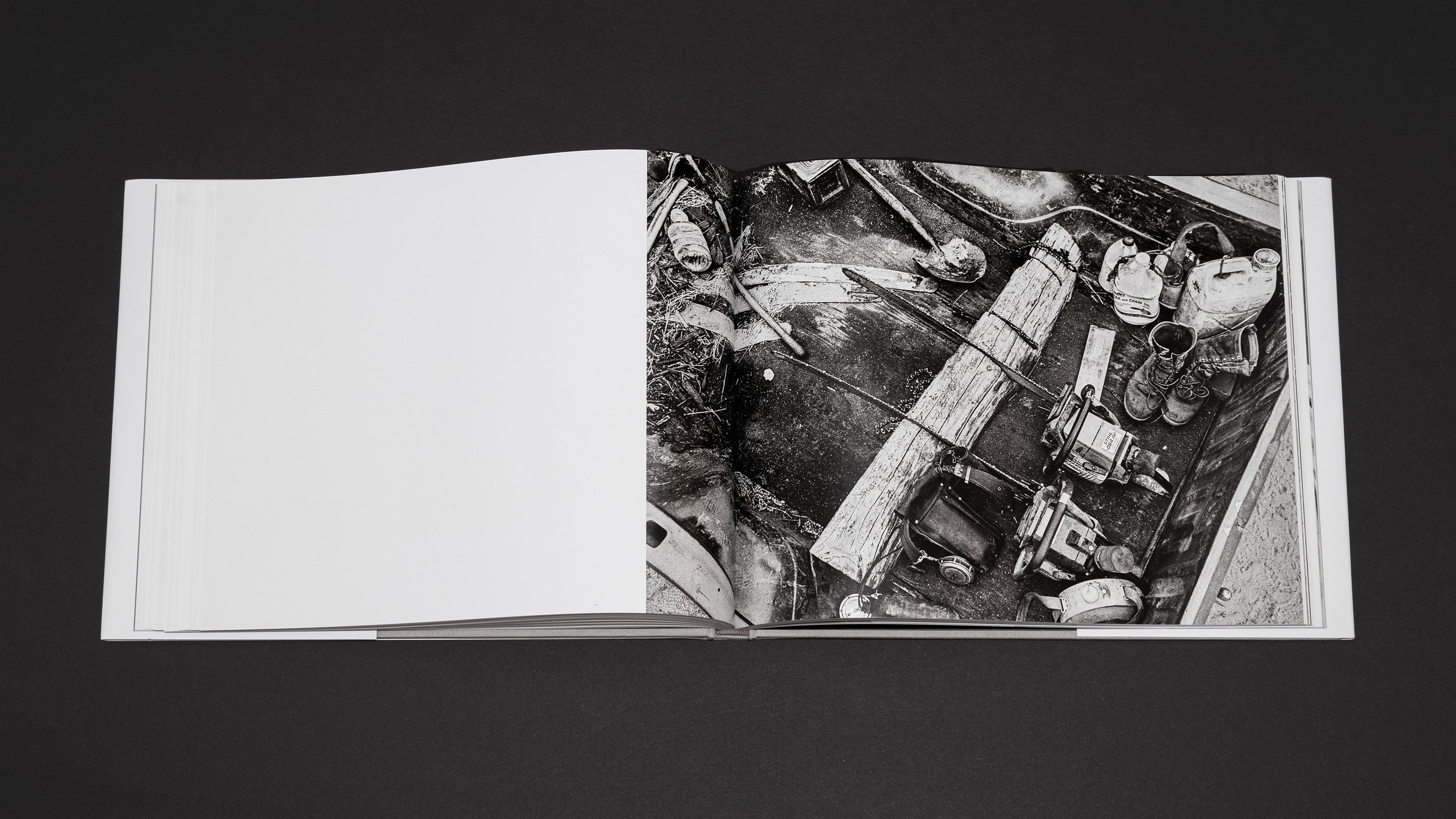
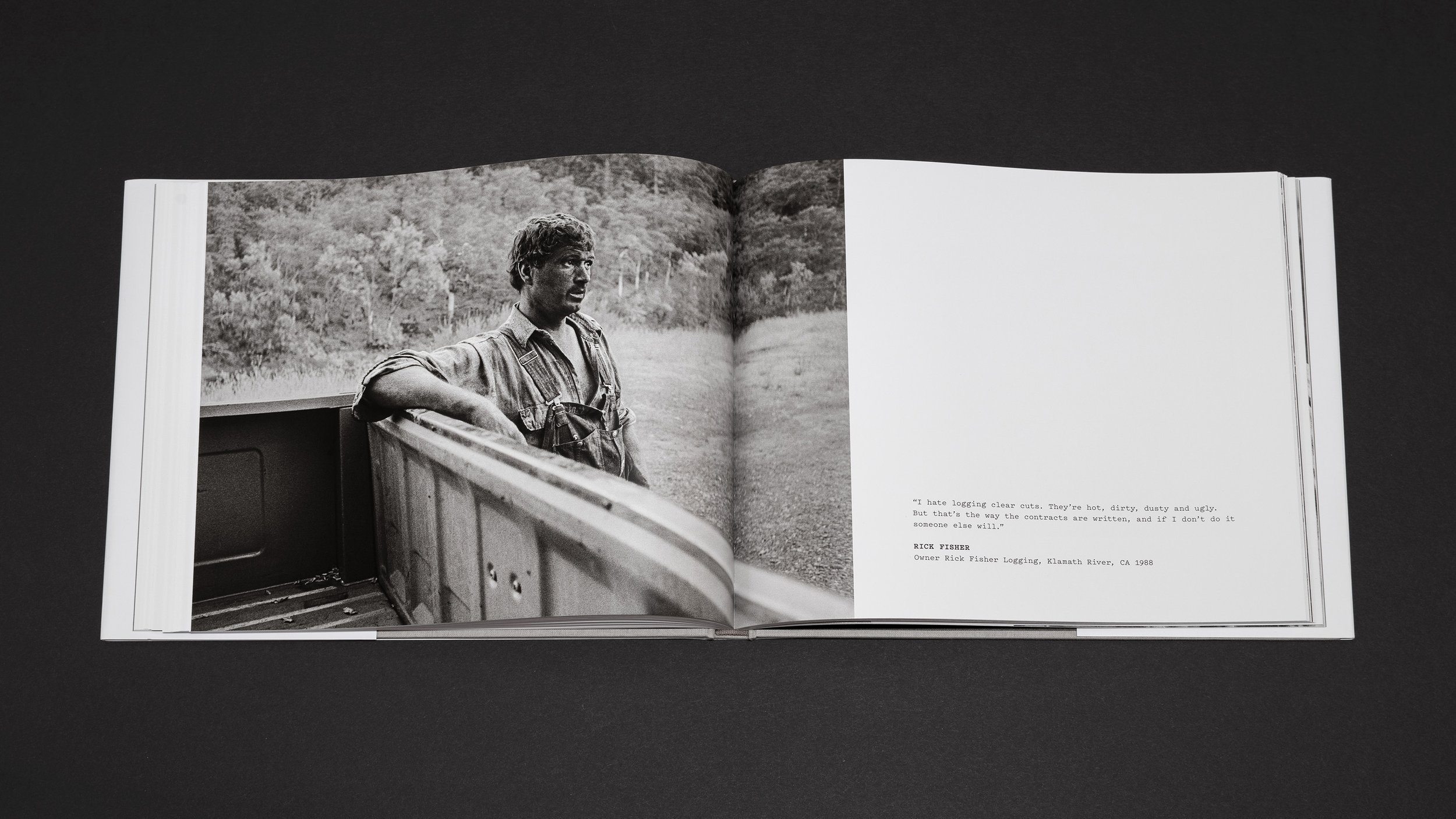
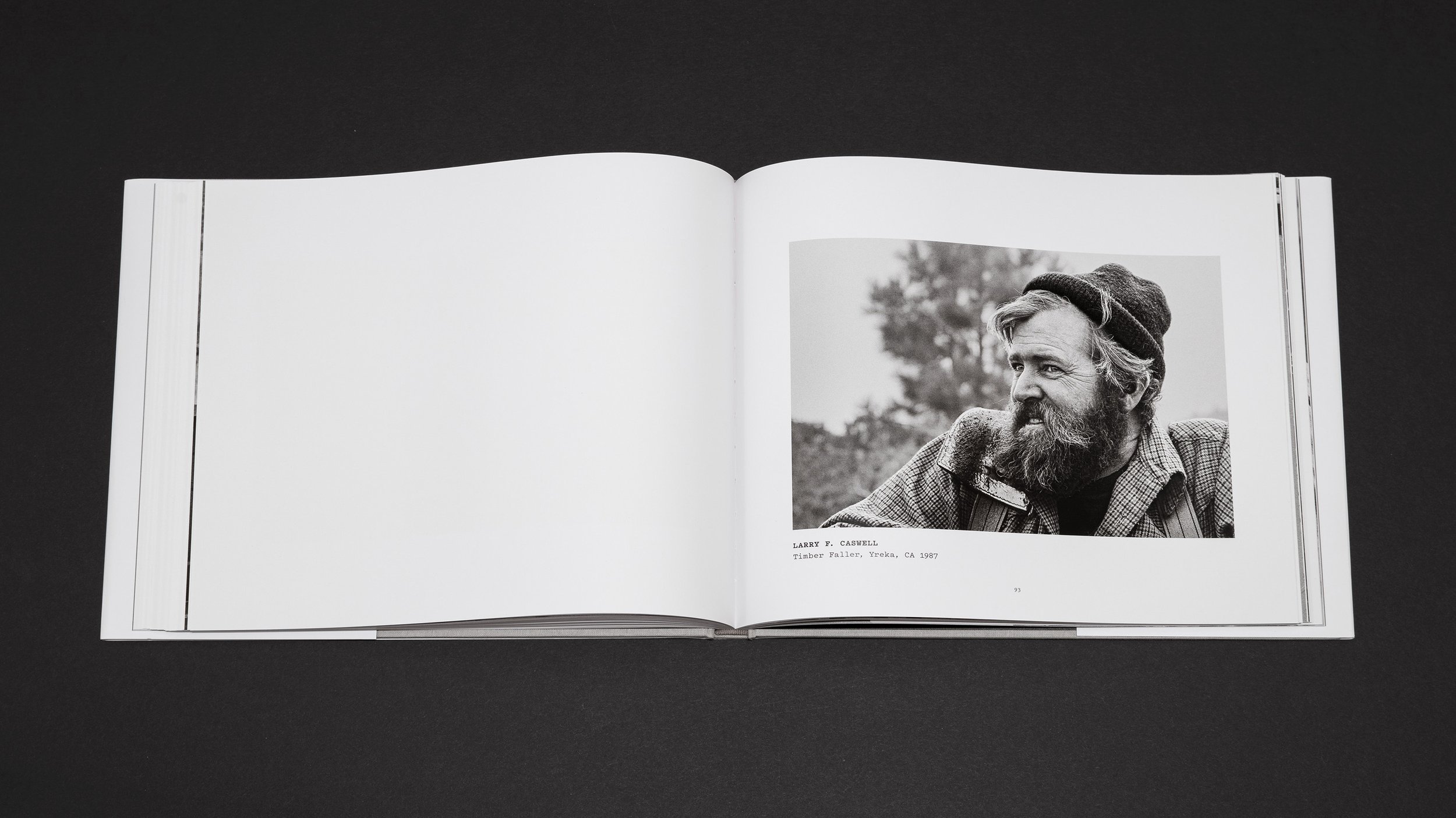
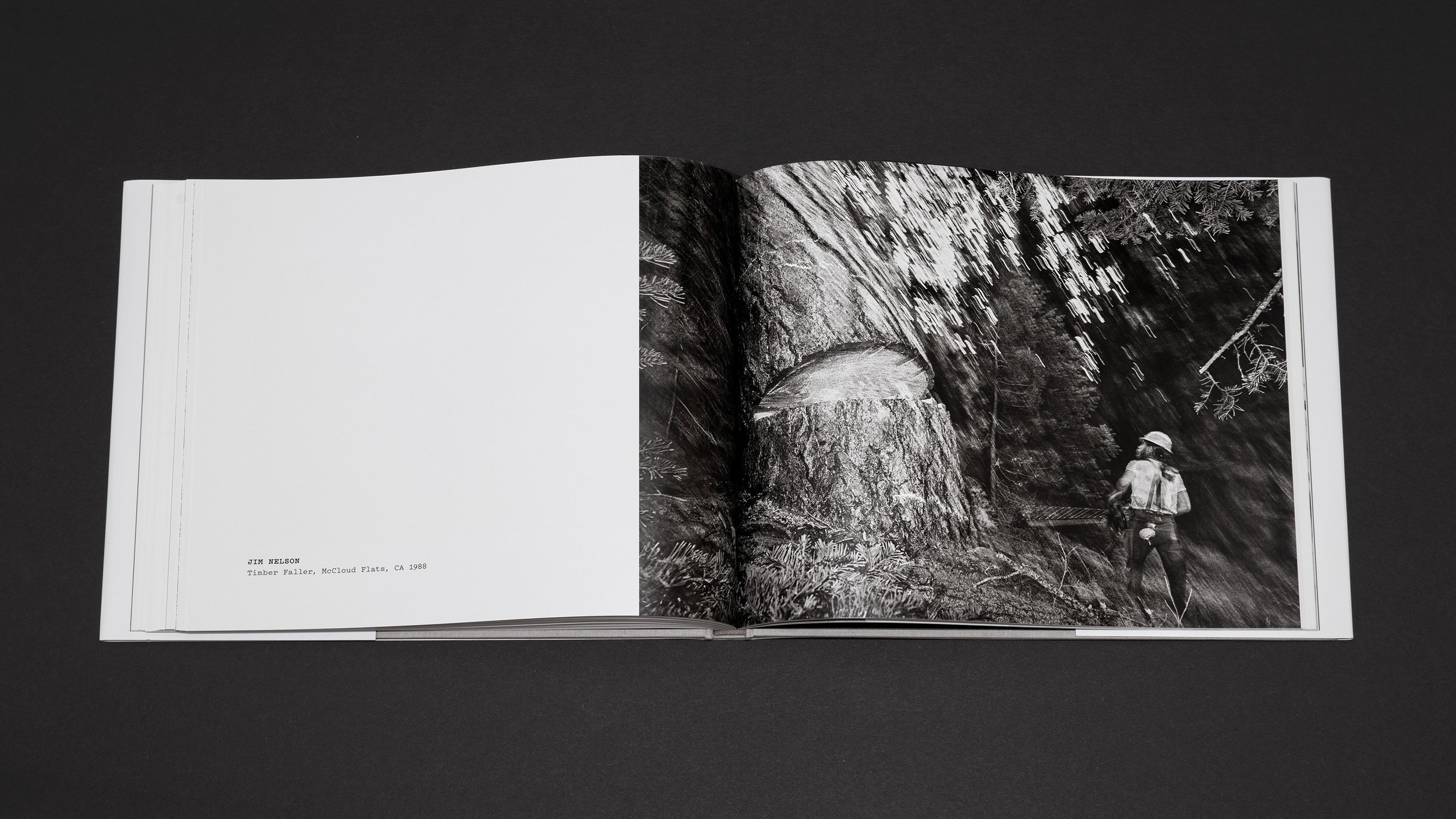
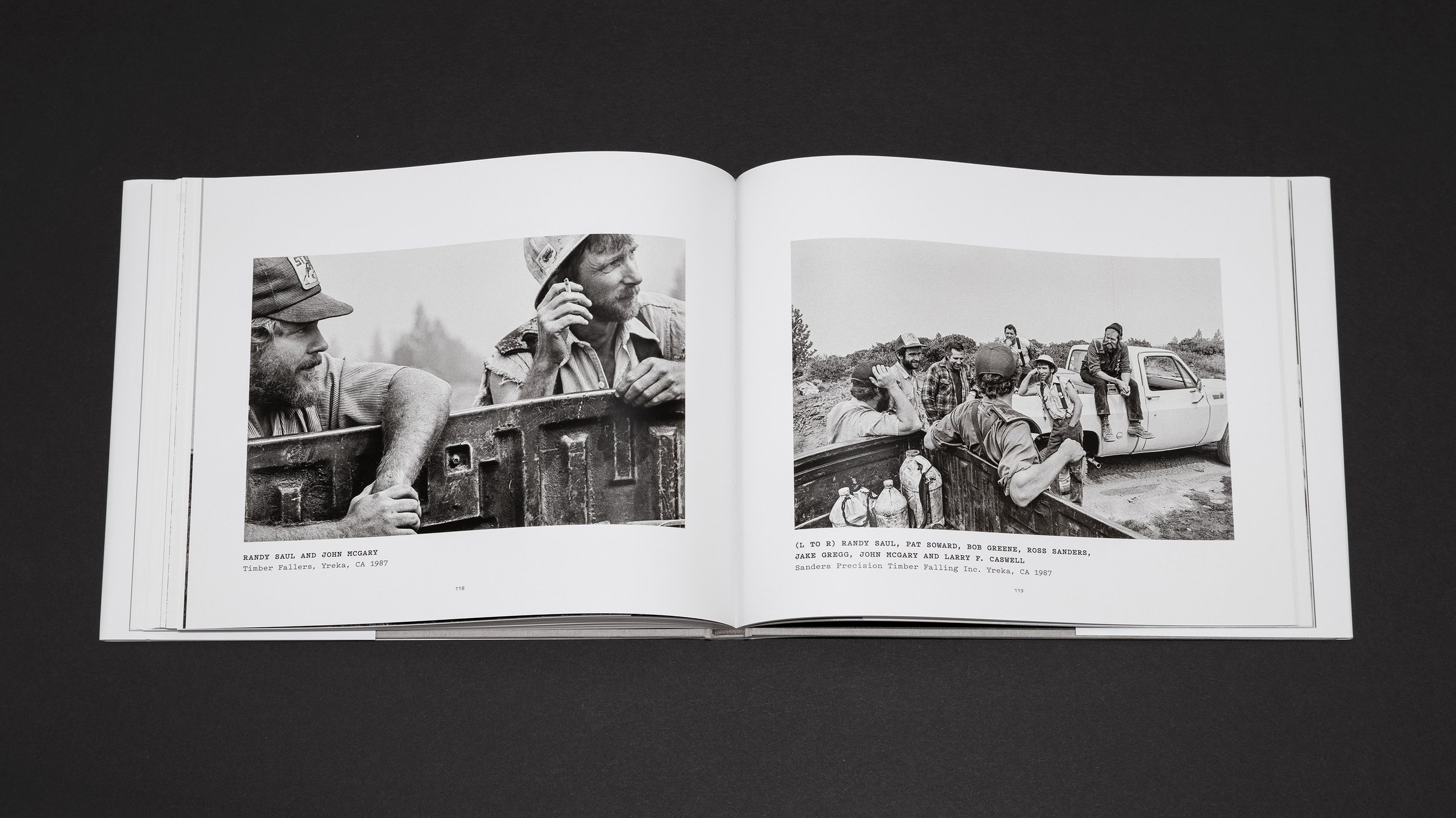

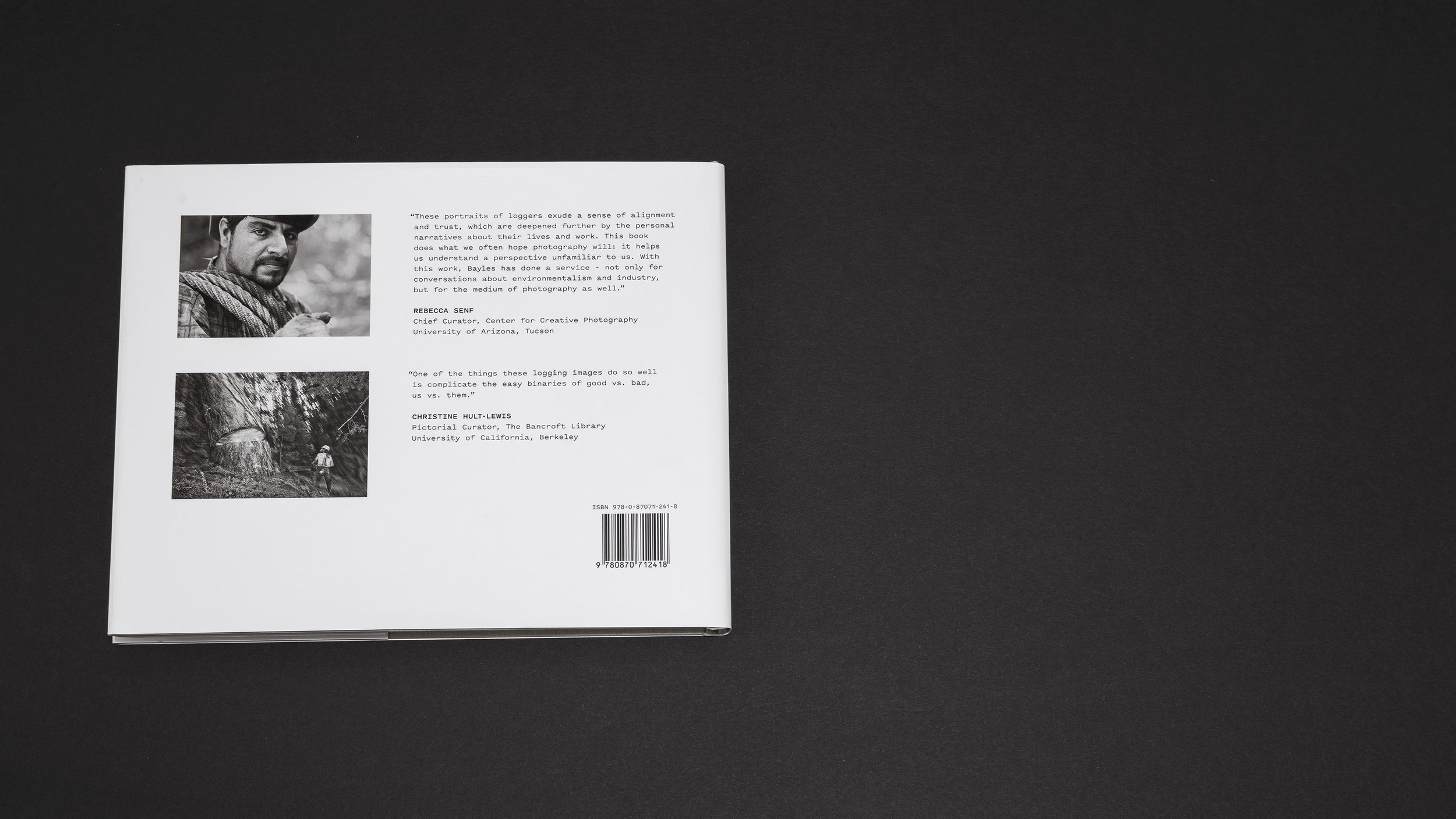
$ 50 PURCHASE NOW
-
In 1972 David Paul Bayles left the suburbs of Los Angeles for a summer job as a logger. Then, instead of heading off to photography school in the fall as planned, he stayed. Four years later, celebrating the end of his last day of logging with his crewmates over a few beers, the woods boss toasted him: “We wish you well in photo school and please don’t forget us dirty old loggers.”
Bayles didn’t. A decade later he returned to the forests of the northern Sierras, Mount Shasta, and Redwood coast regions to create a photo exhibition that traveled through California and Oregon. In 2004 he expanded the project, focusing on how northern California’s logging industry had changed and altered the lives and culture of the men with whom he’d spent long days working in forests, men who worked with their hands and intuition. He discovered that with the increased industrialization of the forest and the arrival of machine-oriented tree felling, work that had relied on experience in meeting challenges, on camaraderie and trust, was in danger of becoming more like a robotically-operated assembly line. As one logger told Bayles, “They’re taking the Paul Bunyan out of logging.”
There’s a poignancy to these portraits and the stories they tell of changing times, hard times, and the humor found in between the dire risks loggers encounter every day. Bayles’ photographs and oral histories introduce us to men who love the forests in which they’ve spent, and sometimes risked, or lost, their lives. Many lament the unnecessary loss of trees and the advent of practices favoring quick profits over safety and sustainability. Bayles’ work is a testament and tribute to a fast-disappearing chapter of American woodsmen, one that may soon be forgotten.
—OSU Press 2023
-
"These portraits of loggers exude a sense of alignment and trust, which are deepened further by the personal narratives about their lives and work. This book does what we often hope photography will: it helps us understand a perspective unfamiliar to us. With this work, Bayles has done a service - not only for conversations about environmentalism and industry, but for the medium of photography as well.”
—Rebecca Senf, Chief Curator, Center for Creative Photography, University of Arizona, Tucson
“The opening sequence of trees being felled provides a stunning, wordless way to better understand the portraits and stories that follow. Despite the dangers they faced daily, the men loved the work, the woods, their families, and each other—and this is made beautifully plain to see in David's images and sparse, poignant writing.”
– James G. Lewis, Historian, Forest History Society, Duke University, Durham
“One of the things these logging images do so well is complicate the easy binaries of good vs. bad, us vs. them.”
— Christine Hult-Lewis, Pictorial Curator, The Bancroft Library, University of California, Berkeley
“These portraits of loggers are deeply human and the Falling Tree images are unique in the history of photography.”
— Roy Flukinger, Photographic Historian, Harry Ransom Center, University of Texas, Austin
-
For information or to schedule the exhibit please visit Sap In Their Veins
